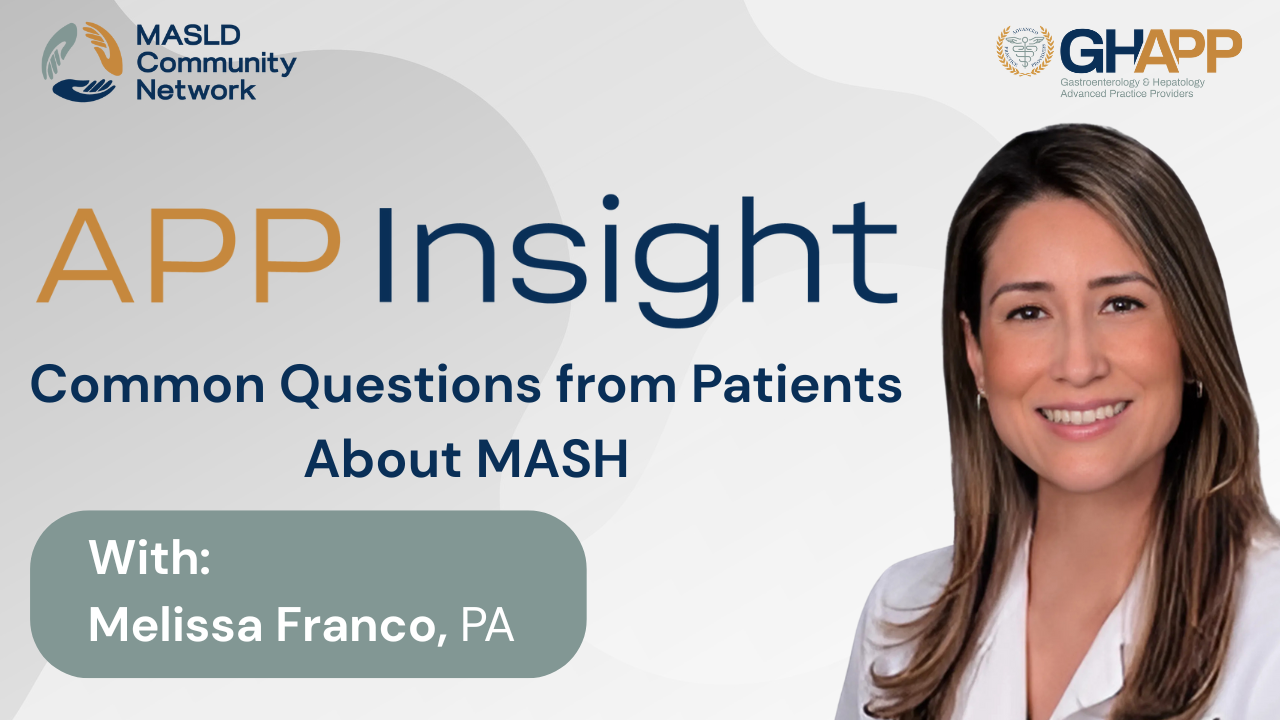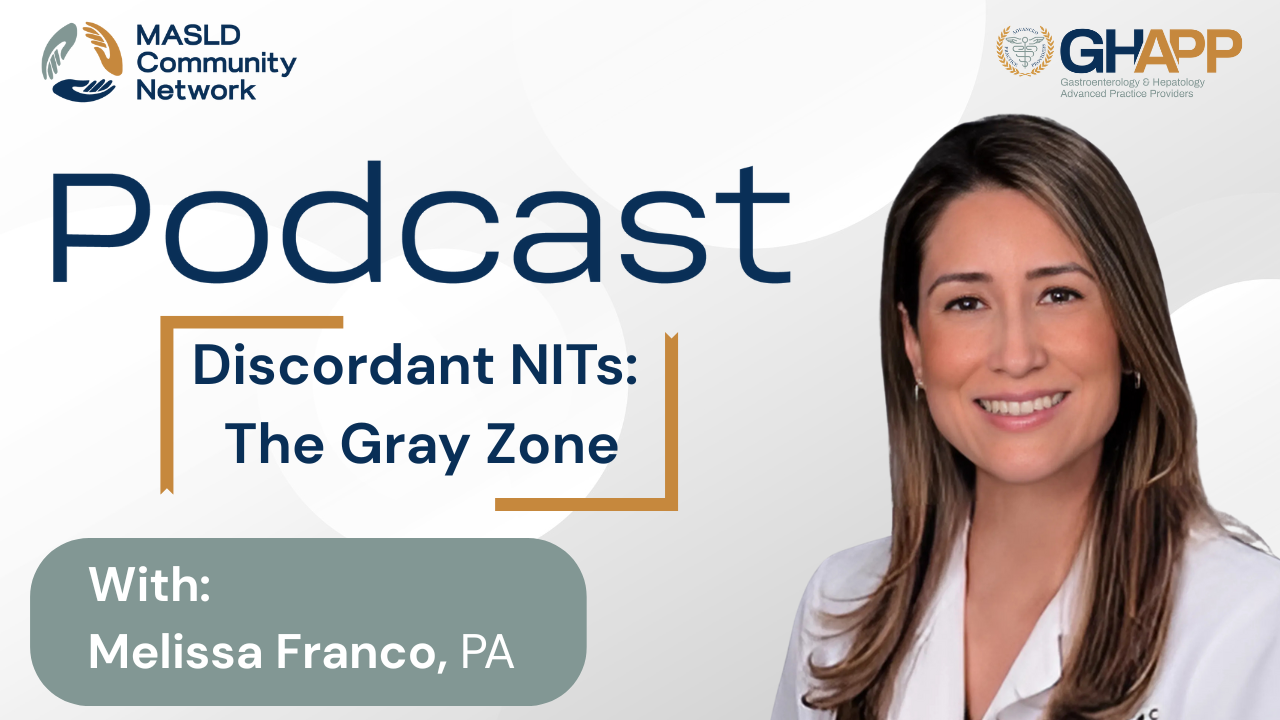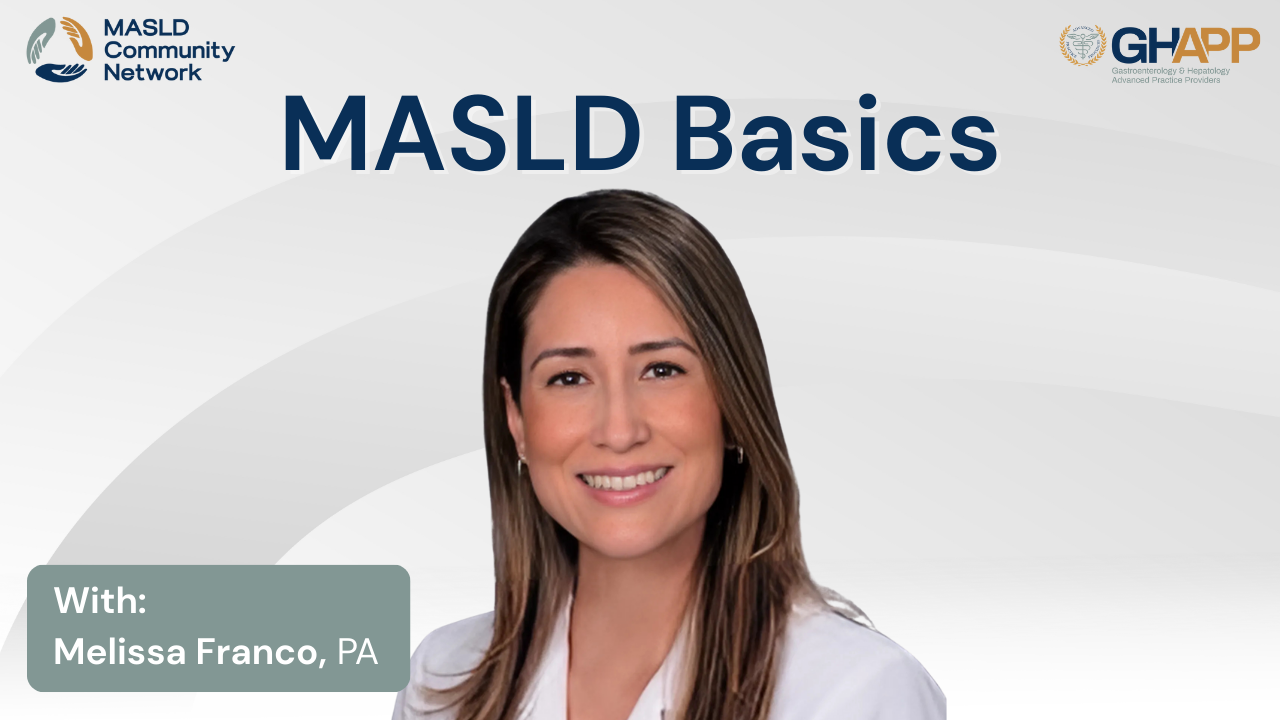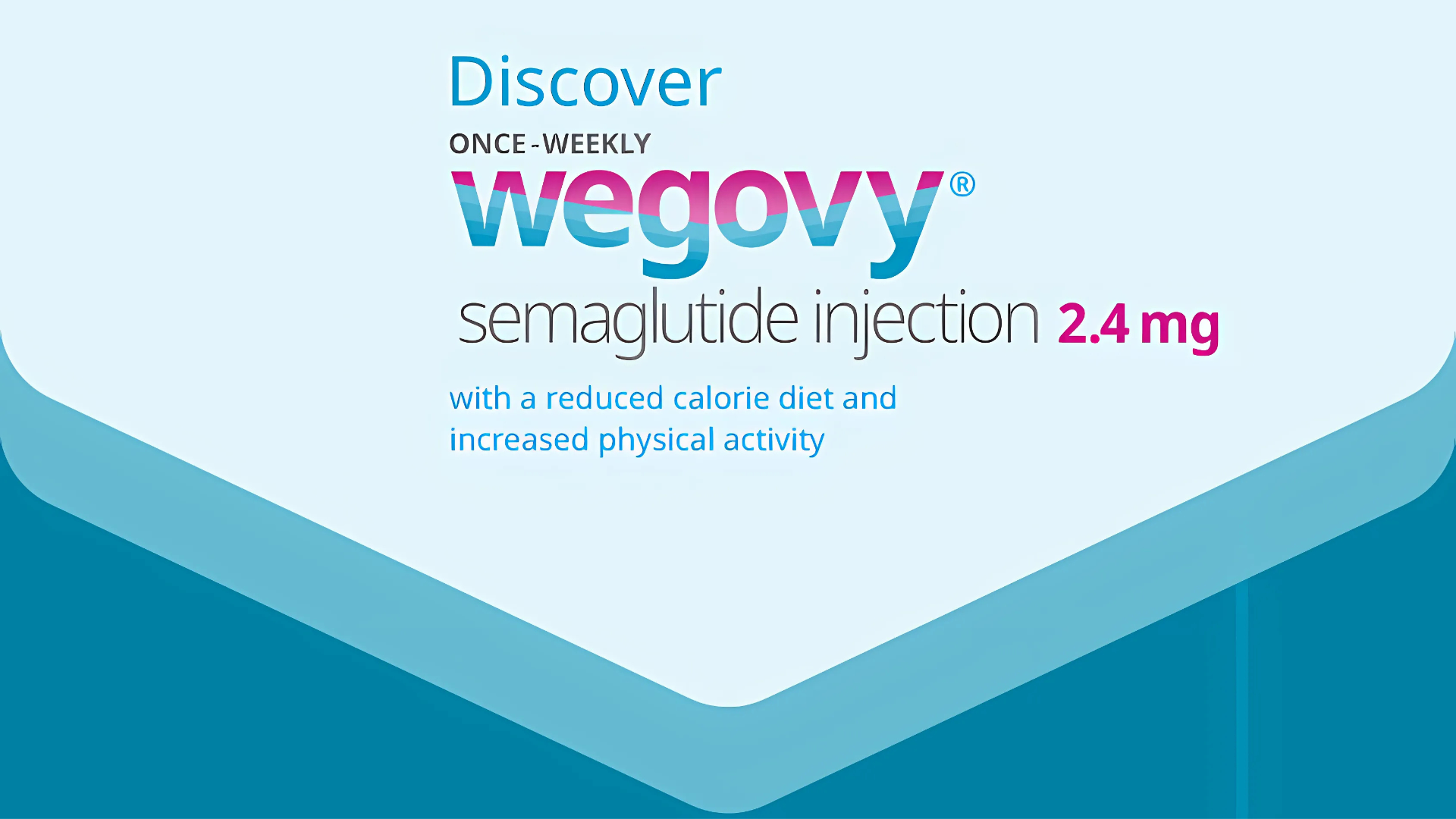
Melissa Franco
PA-C, MMS
Location : Miami, FL, USA
BIO
Melissa Franco is a Physician Associate at the University of Miami- specializing in the management of patients with liver diseases, ranging from acute hepatitis to complex chronic conditions such as cirrhosis and liver cancer. With a strong focus on MASH, autoimmune hepatitis, PBC, viral hepatitides, and cirrhosis- Melissa is dedicated to delivering compassionate, comprehensive care tailored to each patient's unique needs. She is deeply committed to patient education, and strives to empower individuals to take an active role in their health journey, fostering collaboration, and confidence at every stage of care.
MASLD-MASH Content Featuring Melissa

Management of Life Style Modification

This video focuses on the comprehensive management of patients with metabolic-associated steatohepatitis (MASH), emphasizing lifestyle modifications, dietary adjustments, and exercise strategies. Key topics include the importance of addressing risk factors like diet, exercise habits, and alcohol intake, as well as referrals to medically supervised weight loss clinics or bariatric surgery for advanced cases. The speaker highlights the benefits of the Mediterranean diet, intermittent fasting, and avoiding ultra-processed foods while discussing the role of resistance training to combat sarcopenia and maintain muscle mass. Practical advice and tailored recommendations ensure a holistic approach to managing MASH and improving patient outcomes.
Watch Now

Third Step of Life Style Management

This video provides a comprehensive overview of emerging pharmacologic treatments for metabolic-associated steatohepatitis (MASH) and their tailored applications based on patient profiles. Topics include FDA-approved therapies, drugs in advanced clinical trials (such as semaglutide and lanifibranor), and the potential for combination treatments targeting both steatohepatitis and fibrosis. The speaker emphasizes the importance of patient-specific approaches considering metabolic profiles, obesity, and diabetes status, alongside lifestyle interventions. Additionally, the video discusses the evolving interdisciplinary care model and highlights the exciting progress in non-invasive testing and treatment advancements for F2-F3 fibrosis.
Watch Now

Approved Medication for MASH/NASH

This video provides detailed guidance on selecting and monitoring patients for emerging therapies targeting advanced fibrosis (F2-F3) in NASH. Key topics include contraindications for patients with cirrhosis, considerations for concomitant medications, and dose adjustments for statins. The video outlines ideal candidates based on specific thresholds for VCTE, MRE, ELF scores, and other non-invasive tests while emphasizing the importance of ruling out portal hypertension and other liver diseases. It also reviews a stepwise monitoring approach, focusing on tolerability at three months and efficacy assessments at six and twelve months, with an emphasis on histologic and non-invasive test improvements.
Watch Now

Types of Diet for the Treatment of MASLD

This video explores comprehensive strategies for managing metabolic-associated steatohepatitis (MASH), focusing on fibrosis risk stratification, lifestyle modifications, and pharmacologic interventions. Learn about dietary recommendations like the Mediterranean diet, exercise guidelines emphasizing resistance training, and the role of intermittent fasting and processed food avoidance. The video also highlights weight loss targets, diabetes management, and emerging therapies such as GLP-1 receptor agonists and bariatric surgery, all aimed at improving liver health and patient outcomes.
Watch Now

NITs to Identify High Risk MASH Patients

Explore advancements in non-invasive diagnostics and risk stratification for liver fibrosis and MASH. This video highlights tools like FIB-4, transient elastography, and innovative scoring systems (e.g., FAST and Agile) to identify and predict outcomes for high-risk patients. Learn about serum biomarkers, updated guidelines, and the role of lifestyle interventions alongside targeted therapies for managing metabolic risks and advancing care in hepatology.
Watch Now

Common Questions From Patients About MASH

Discover practical insights into managing fatty liver disease from Melissa Franco, PA, a hepatology expert at the University of Miami. In this MASLD Community Network episode, Melissa answers one of the most common questions from patients: what causes fatty liver and how to improve it. She explains the multiple factors that can lead to fatty liver, including lifestyle, diet, genetics, alcohol use, and certain medications, and emphasizes the critical role of dietary modifications and regular exercise—often recommending the Mediterranean diet. Melissa also addresses alcohol use in patients with fatty liver, sharing why she discourages it entirely due to its potential to accelerate fibrosis progression, even at mild intake levels. Learn why personalized nutrition, physical activity, and avoiding alcohol are key steps in slowing disease progression and protecting liver health. Whether you’re a patient, caregiver, or healthcare professional, this video offers clear, evidence-based guidance on managing fatty liver disease effectively.
Watch Now

Discordant NITs: The Gray Zone

Join Melissa Franco, PA at the University of Miami, for an in-depth episode of the GHAPP MASLD Community Network podcast focused on discordant non-invasive tests (NITs) and navigating the "gray zone" of liver fibrosis staging. Melissa walks through common real-world scenarios where FIB-4, FibroScan, ultrasound, ELF score, and MR elastography deliver conflicting results—exploring why this happens and how to approach it clinically. Learn how patient factors such as obesity, alcohol use, co-morbidities, medications, and test limitations can impact NIT interpretation. Discover Melissa’s expert strategies for re-evaluating results, when to consider liver biopsy, and how to communicate these complexities with patients. From understanding how false elevations occur to using imaging and labs to confirm or exclude advanced fibrosis, this episode provides a practical and evidence-based approach to staging MASLD and MASH when results don’t align. Whether you're managing metabolic liver disease in hepatology or primary care, this is essential listening for interpreting liver diagnostics in nuanced clinical settings.
Watch Now

MASLD Basics With Melissa Franco

Join Melissa Franco, PA-C, from the University of Miami for a comprehensive review of MASLD (Metabolic Dysfunction-Associated Steatotic Liver Disease) and the 2023 nomenclature updates replacing NAFLD and NASH. Presented through the GHAPP MASLD Community Network and sponsored by Madrigal Pharmaceuticals, this session covers the spectrum of steatotic liver disease, including MASLD, MASH, MetALD, alcohol-related liver disease (ALD), and other causes of hepatic steatosis. Learn how to diagnose MASLD using imaging, cardiometabolic risk criteria, and how to exclude other causes like alcohol use, medications, and genetic disorders. Melissa explains how to risk stratify patients using FIB-4, FibroScan, and ELF testing, and when to consider referral to hepatology, especially for patients at intermediate or high risk for advanced fibrosis. The talk also explores global prevalence, natural history, disease progression to cirrhosis and HCC, and highlights the importance of identifying and managing patients with F2–F4 fibrosis, now classified as at-risk MASH. Through a real-world case study, viewers are guided on how to perform a thorough MASLD workup and assess patients for pharmacotherapy, lifestyle counseling, and surveillance protocols. Whether you are in primary care, GI, or endocrinology, this session is an essential resource for early diagnosis and comprehensive management of fatty liver disease in today’s clinical practice.
Watch Now
Highlighted Events

4th Annual GI & Liver Summit

The GI and Liver Summit will deliver focused, educational updates highlighting clinically relevant advances in the management of patients with chr..

GHAPP Regional

Speakers: TBD..

GHAPP Regional

Speakers: TBD Location: New Orleans Marriott Metairie at Lakeway..

GHAPP Eighth Annual Conference

About the 2025 GHAPP Conference The GHAPP conference is the only conference specifically designed by advanced practice providers (APPs) for the pur..
Latest News & Blogs

Wegovy® approved in the US for the treatment of MASH

Check out the prescribing information here: https://bit.ly/novo-pi-wegovy
Read More
Related Content

Clinical Deep Dive: Unlocking the Treatment Potential of Rezdiffra

This educational discussion dives into Rezdiffra, the first and only FDA-approved therapy for non-cirrhotic metabolic-associated steatohepatitis (MASH) with moderate to advanced fibrosis. The talk provides a clinical deep dive into the progression of MASH and fibrosis, highlighting the risks of untreated disease and the importance of early intervention. A key focus is the thyroid hormone receptor beta mechanism, explaining how Rezdiffra directly targets liver-specific pathways to reduce hepatic fat accumulation and fibrosis. Additionally, the discussion covers the rigorous FDA approval process and dual efficacy endpoints, detailing how Rezdiffra achieved significant fibrosis improvement and steatohepatitis resolution in the MAESTRO-NASH trial. The session also provides practical insights into patient access, prescribing considerations, and managing common side effects. With over 2,000 patients studied, Rezdiffra has demonstrated a strong safety profile and offers a once-daily oral treatment option that represents a major advancement in MASH management. This discussion is essential for gastroenterologists, hepatologists, and endocrinologists managing patients with MASH, as well as primary care providers and cardiologists who play a role in identifying at-risk individuals. If you are a healthcare professional looking to stay updated on the latest MASH research and treatment strategies, this session provides the insights you need.
Watch Now

Liver Model Overview

Join Alison Moe, PA-C with United Digestive, as she walks through a hands-on demonstration using a life-sized liver model to help patients better understand fibrosis and liver disease progression. In this engaging and practical overview, Allison explains how different stages of liver fibrosis—from normal liver to cirrhosis and hepatocellular carcinoma—can be felt and visualized using a segmented anatomical model. She shares how this tool enhances patient education during discussions about non-invasive liver testing, such as FibroScan, CAP scores, FIB-4, ELF testing, and more. Designed to support visual learners and improve comprehension of disease state, this video is a valuable resource for clinicians and patients navigating the complexities of metabolic-associated fatty liver disease (MASLD) and its progression to MASH. Learn how tactile and visual teaching aids can bridge the gap between diagnostics and patient understanding in hepatology care.
Watch Now

Differentiating Between F3 and F4

In this comprehensive discussion, HoChong Gilles, a nurse practitioner with 25 years of hepatology experience at the Richmond VA Medical Center, explores the critical importance of accurately distinguishing between F3 (advanced fibrosis) and F4 (cirrhosis) in patients with MASH (metabolic-associated steatohepatitis). While both stages carry increased risks of liver-specific and overall mortality, Gilles explains that F3 may still be reversible with lifestyle changes or pharmacotherapy, whereas F4 signals irreversible liver damage with heightened risk of complications like portal hypertension, hepatic encephalopathy, and liver cancer. Viewers will gain a deeper understanding of how non-invasive tests—like FIB-4, ELF, FibroScan, and MRE—perform in identifying fibrosis stage, including their limitations and overlaps. Gilles also outlines when to consider liver biopsy, especially in cases with discordant test results, atypical features, or clinical uncertainty. This video emphasizes how staging accuracy informs eligibility for therapies, surveillance strategies like HCC screening, and overall prognosis. Learn how to approach this nuanced distinction in clinical practice and why F3 vs. F4 isn't just semantics—it's a turning point in patient care.
Watch Now

Addressing Health Disparities: Equity Considerations in MASH/MASLD Care

In this episode, Patrick Horne, NP at the University of Florida (UF Health), explores the impact of health disparities and socioeconomic inequality on the diagnosis and management of MASH (metabolic-associated steatohepatitis) and MASLD (metabolic dysfunction-associated steatotic liver disease). With a focus on rural and underserved populations, Patrick discusses how limited access to quality healthcare, healthy food, exercise options, and non-invasive testing (NITs) like FibroScan or MRI elastography can delay diagnosis and worsen outcomes. He shares practical, empathetic strategies for individualizing care, such as using accessible tools like FIB-4 or APRI, promoting low-cost physical activity like walking or swimming, and providing culturally sensitive nutrition advice tailored to financial and geographic realities. Patrick emphasizes the provider’s role as a patient advocate and coach, helping patients navigate barriers and create sustainable lifestyle modifications. This episode offers key insights for clinicians working to close gaps in care and promote equity in liver disease management.
Watch Now

Pharmacotherapy Review

Join Christina Hanson, FNP-C, from South Denver Gastroenterology, as she provides an in-depth overview of the current pharmacologic treatment landscape for Metabolic Dysfunction-Associated Steatotic Liver Disease (MASLD) and Metabolic Dysfunction-Associated Steatohepatitis (MASH). This expert-led session explores the three cornerstones of MASH management—lifestyle and weight loss interventions, cardiovascular risk reduction, and liver-directed therapy—while highlighting the evolving role of GLP-1 receptor agonists and the recent FDA approval of resmetirom, the first medication indicated for adults with MASH and moderate to advanced fibrosis. Christina also discusses clinical trial data from MAESTRO-NASH, reviews historical agents like vitamin E and pioglitazone, and offers practical guidance on patient selection, safety considerations, and monitoring strategies. Whether you’re a GI provider, hepatology specialist, or primary care clinician managing fatty liver disease, this video provides valuable insights into how emerging therapies are shaping the future of MASH treatment.
Watch Now




